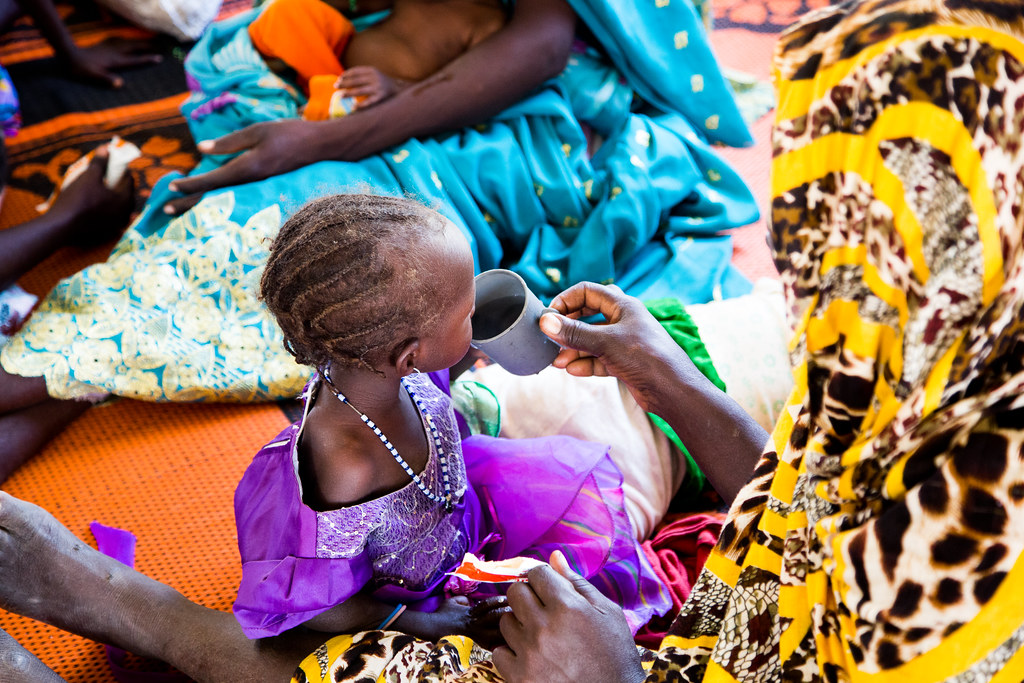Three United Nations agencies have issued a stark warning about the deteriorating nutrition situation for children and mothers in war-torn Sudan. The United Nations Children’s Fund (UNICEF), the World Food Programme (WFP), and the World Health Organization (WHO) highlight the urgent need for action to prevent widespread malnutrition, disease, and death among Sudan's youngest and most vulnerable population.
A recent analysis by these agencies indicates that ongoing hostilities are exacerbating the drivers of child malnutrition, including lack of access to nutritious food, safe drinking water, and sanitation, and an increased risk of disease. The situation is further worsened by massive population displacement as people flee the conflict. Sudan is at an ever-increasing risk of conflict-induced famine, which could have catastrophic consequences, especially for young children.
The year-long conflict has severely impacted the delivery of humanitarian aid, leaving many women and children without vital food and nutritional support. The agencies are struggling to deliver nutrition products due to growing violence and bureaucratic obstacles that hinder access to conflict-affected areas.
Child malnutrition in Sudan has reached emergency levels. In Central Darfur, acute malnutrition among children under five is estimated at 15.6%, while in the ZamZam camp, it is close to 30%. This situation has deteriorated in recent months with no signs of improvement due to continued conflict and restricted humanitarian access. Acute malnutrition is life-threatening, making malnourished children up to 11 times more likely to die than well-nourished ones. Malnutrition and disease exacerbate each other, leading to worse outcomes for affected children. Even when children recover, malnutrition can have lifelong effects on their physical and cognitive development, posing severe implications for Sudan's future.
The levels of malnutrition among pregnant and breastfeeding mothers are also alarming. A recent screening by Médecins Sans Frontières in ZamZam camp, North Darfur, found over 33% of pregnant and breastfeeding women to be malnourished, indicating that they may be sacrificing their own needs to feed their children. This poses significant risks not only to the mothers’ health but also to the next generation of Sudanese children, as malnutrition often begins in utero.
“Children in Sudan are experiencing horrific violence, displacement, and trauma – and now they are confronted with potential famine,” said UNICEF Executive Director Catherine Russell. “Parties to the conflict must urgently allow humanitarian access so children can receive food, water, medical care, and shelter. But most of all, children need peace.”
“Mothers and children across Sudan are wasting away from malnutrition. The ongoing war has stripped them of everything they need to survive – food, medical support, and shelter,” added WFP Executive Director Cindy McCain. “We need immediate and safe access to deliver the humanitarian assistance they so desperately need. Without it, this crisis risks becoming the world’s largest hunger emergency.”
“Malnutrition is not a one-time crisis. Malnourished children face a lifetime of developmental challenges and ill-health and are also more likely to die from infectious diseases,” noted WHO Director-General Tedros Adhanom Ghebreyesus. “The clock is ticking, edging Sudan’s mothers and children closer to famine. WHO and partners are on the ground working to prevent and treat acute malnutrition to save lives but need sustained humanitarian access and full financial backing to do this.”
The report acknowledges data gaps due to difficulties in accessing conflict hotspots, which in itself indicates a lack of vital humanitarian access in the worst-affected areas. The agencies warn that the situation will only worsen in the coming months with the onset of the rainy season, which will cut off communities and increase disease rates. Sudan is also entering the lean season, a period between harvests when food stocks traditionally run low, exacerbated this year by below-normal agricultural production due to insecurity and displacement.
The agencies call for immediate, unimpeded, and consistent access to communities suffering the worst effects of the conflict, through all possible routes, as well as a de-escalation in El Fasher and a nationwide ceasefire. They also urge for renewed and significant scaled-up support from donors, emphasizing that the window to avert the worst is rapidly closing.











